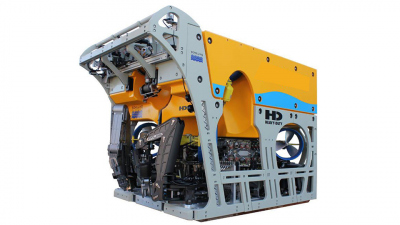- Home
- Discover
- Archive News
- News 2022
- new ROV
New remotely operated vehicle for Bremen deep-sea research and environmental observation
The ROV replaces the current diving robot MARUM-QUEST. MARUM's marine technology team has continuously developed the ROV over nearly 20 years to meet scientific requirements. For example, high-resolution camera systems have been developed to enable recordings in 4k format or as stereo images from the deep sea. A variety of sampling and measuring devices have been developed in different scientific working groups specifically for use on the diving robot. In addition, researchers on land can follow dives in real time through so-called telepresence.
MARUM-Quest and the new diving robot are compatible, so that individual components – for example, the telemetry system and all special scientific payloads – can continue to be used with the new ROV.
The ROV will be delivered next year by the company Schilling Robotics (USA). After a conversion and upgrade phase, it will be used for the first time for science in 2024. MARUM-QUEST will be kept in operation until then.
The cost of the new diving robot, including the supply cable and winch, is around 4.5 million euros, half of which is provided by the federal government and half by the state of Bremen.



